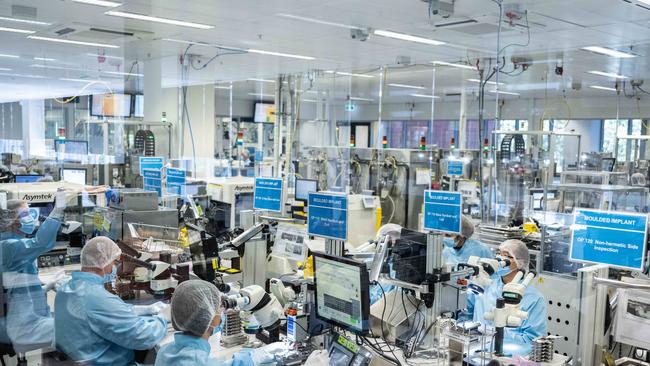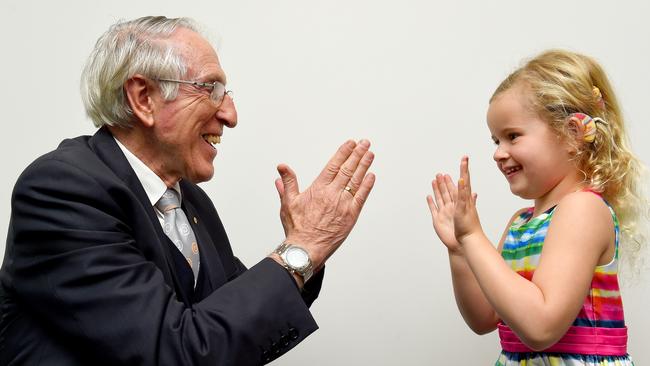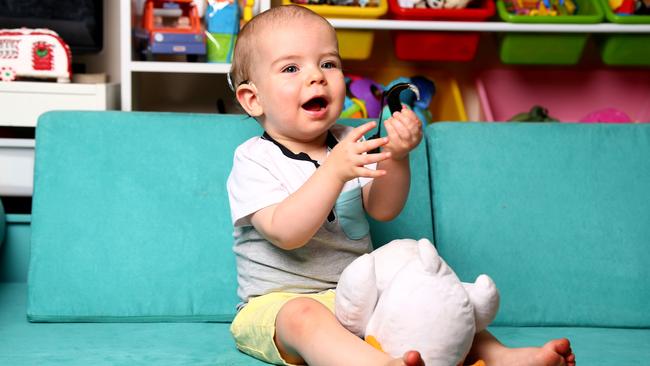When keeping an ear open and cashing in too early hurts
There is an investment mistake more painful and more costly than a 100 per cent loss and here’s what you can do to avoid it.

Australia has few world-class businesses. Cochlear is one of them.
After making over 500 per cent between 1998 and 2002, it then became one of the greatest mistakes of the past 25 years. This is how it happened.
Having watched his father suffer from hearing loss, from an early age Graeme Clark wanted to “fix ears”. In 1977, while holidaying south of Wollongong, New South Wales, he came across a turban sea shell. Noticing the similarities in its structure to the inner ear, it was a Eureka moment.
Cochlear, founded in 1981 as a subsidiary of medical electronics company Nucleus to promote Clarke’s invention, now leads the world in this field. Over 750,000 Cochlear implants and processors have been installed globally.
In 1995, the company listed on the ASX with an offer price of $2.50. It now trades at around $283 a share. No matter the mistakes incurred elsewhere, a 12,000 per cent increase over almost 30 years will probably offset the damage.
If, in your investing life, you can find two or three companies like this and hang on – subject to maintaining sensible portfolio limits – you should do just fine. As we shall see, hanging on is the hard part.

Back in those days I was sitting on what would now be called an investment advisory committee – and like my most of my team I was keen on Cochlear after its winning US Federal Drug Administration approval – it joined our Buy list at a price of $6.30.
Four years later, in early 2002, we sold out at $41.40, recognising a gain of 557 per cent but saying we’d like to own the company again ‘at the right price’.
We got our chance when Cochlear was facing growing competition in the US. Following a profit warning, we bought back in at $20.70, half the price we had sold it for less than two years earlier.
There followed over a decade of hanging on. Cochlear was at the top of its game, growing sales and profits. By late 2014, its share price was heading towards $70. In early 2015, inflexible fixed manufacturing costs and lower sales had crushed margins. Net profit was down 75 per cent. With little margin of safety, we recommended members sell at $86.08, again hoping to buy back in. That chance never came.
Between late 2003 and 2015, Cochlear had returned a little over 2,600 per cent at a compound annual growth rate (CAGR) of 25 per cent. How that can be seen as a poor result can be explained by what happened next.
Had we purchased Cochlear at $6.30 a share in mid-1998 and done nothing, using February 2024 share prices, our return would have been about 4,460 per cent. Including dividends, it would be more.

Despite making 27 times our money, we let one of Australia’s best businesses go. In selling a 27-bagger that could have been a 50-bagger, we cut a successful investment off at the knees. This is how that mistake was made.
First, we underestimated intrinsic value. Cochlear grew faster and more profitably than we anticipated. That had a big impact on the company’s future earnings power. As a result, many of our sell recommendations after 2015 should have been holds, and holds should have been buys.
Second, underestimating the company’s ability to grow, we were too anchored on price and value.
Finally, we were overconfident. Had we not made a 557 per cent return between 1998 and 2002, accidentally timing our exit perfectly, we might have been more willing to hang on.
There are six lessons we took from slashing the best flower in the garden:
1. Buy good businesses going through tough times – Poor businesses tend to deliver nasty surprises, good businesses usually do the opposite. Occasionally, though, something goes wrong. This is often the best time to buy.
2. Pay up for quality – The best companies rarely trade at cheap prices. Even when they stumble, investors generally recognise their ability to recover quickly. Quality has its price. Usually, it is worth paying.
3. Hang on, preferably forever – High-quality companies tend to compound and grow at a faster rate than most investors can achieve themselves. If a company like Cochlear can invest, say, an additional $10,000 in its business and get a better return on it than you are likely to, let them do so.
4. Keep trading costs down – Investors who buy and hold stocks tend to enjoy lower turnover and better performance. After 30 years, an additional 1 per cent a year in costs will reduce your
portfolio’s value by 26 per cent. A US study of 66,000 investors found that those who traded the most lagged the overall market’s performance by 7 per cent. Time is the retail investors’ biggest and best advantage.
5. Don’t sweat the wipe-outs – The mind lingers on mistakes because the pain of losing $1,000 is greater than the joy of making the same amount. Stocks can only fall to zero but they can rise 10- or 100-fold.
John Addis is the co-founder of Intelligent Investor, his new book How Not to Lose $1 million, is published by Major Street Publishing




To join the conversation, please log in. Don't have an account? Register
Join the conversation, you are commenting as Logout